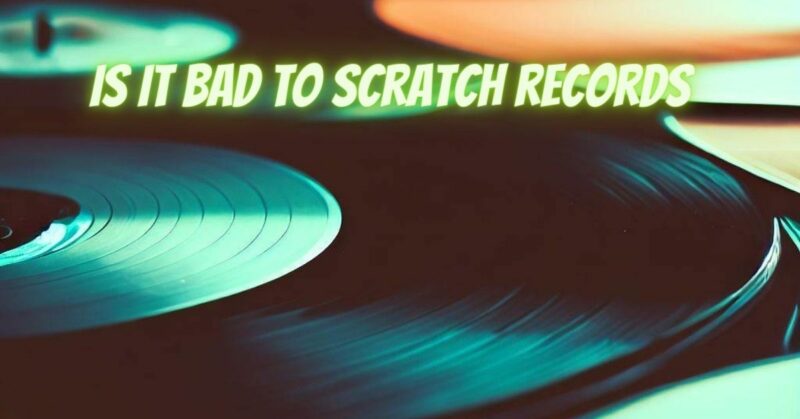Vinyl records have a delicate surface that can be susceptible to scratches. The presence of scratches on a record can raise concerns among collectors and audiophiles about potential damage to sound quality. In this article, we will explore the impact of scratches on vinyl records and discuss whether scratches are inherently bad for your cherished collection.
The Effects of Scratches:
- Audible Noise: Scratches on a vinyl record can introduce audible noise in the form of clicks, pops, or skips. These imperfections can disrupt the listening experience and distract from the intended sound quality.
- Tracking Issues: Deep or severe scratches can affect the stylus tracking across the record surface. The stylus may jump or skip within the groove, causing the needle to lose contact with the audio information. This can result in distorted playback or even the inability to play certain sections of the record.
- Sound Fidelity: Shallow or light scratches generally have a minimal impact on overall sound fidelity. The stylus can often navigate over minor surface imperfections without significant audio distortion. However, deep scratches or gouges that penetrate into the groove walls can cause more noticeable sound degradation.
- Wearing Down the Stylus: Continuously playing records with deep scratches can accelerate stylus wear. The stylus tip may experience increased friction and encounter rough patches, potentially leading to a shorter lifespan for the stylus and compromising future playback.
Preventing and Minimizing Scratches:
- Proper Handling: Handle records with care, avoiding touching the playing surface with bare hands. Hold records by the edges or use record handling accessories to minimize the risk of introducing scratches.
- Cleanliness: Keep records clean to reduce the potential for dirt or debris to cause scratches during playback. Regular cleaning and using high-quality inner and outer sleeves can help minimize the accumulation of particles that can damage the record surface.
- Correct Turntable Setup: Ensure your turntable is properly set up with appropriate tracking force, anti-skate adjustment, and properly aligned cartridge. Incorrect setup can increase the risk of scratches or tracking issues.
- Stylus Maintenance: Regularly clean and inspect the stylus to ensure it is free from debris and properly aligned. A well-maintained stylus is less likely to exacerbate existing scratches or introduce new ones.
Conclusion:
While scratches on vinyl records can potentially impact sound quality and introduce audible noise, the severity of their impact depends on the depth and location of the scratches. Shallow scratches often have minimal effects on sound fidelity, while deep scratches can cause more noticeable distortion or tracking issues. However, with proper handling, regular cleaning, and a well-maintained turntable setup, the risk of scratches can be minimized.
Remember, prevention is key. Treat your records with care, maintain a clean environment, and handle them correctly to avoid unnecessary damage. By adopting these practices, you can prolong the lifespan of your vinyl records and ensure an optimal listening experience.


